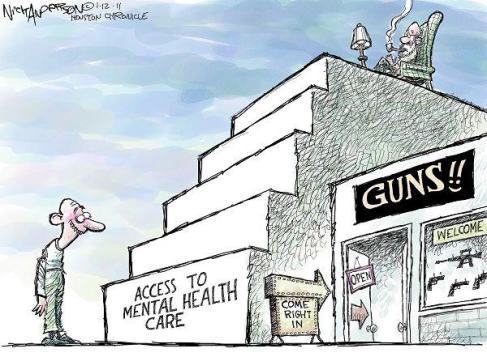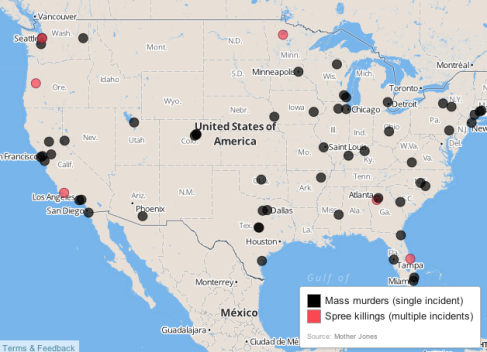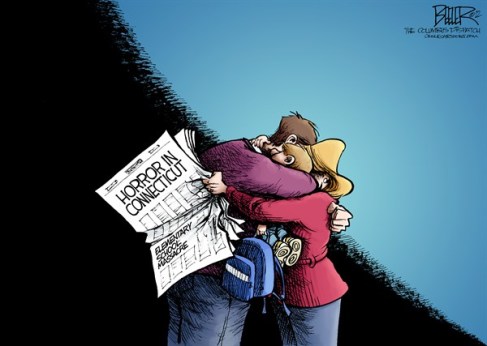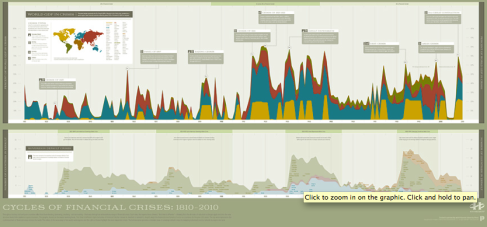by alex felipe (alexfelipe.photographer@gmail.com)
The Connecticut mass shooting was a tragedy, it was the seventh this year alone. The media, mainstream and social, have been ablaze with justified outrage. Many fingers are being pointed in so many directions that for those seeking to understand why, they would equally be justified in being left in a daze.
The Western Left, in its decades long insecurity, has allowed the field to be dominated by voices placing blame on symptoms rather at the root cause.
The aftermath of Newtown has shown the need for a coherent and inclusive narrative from the Left. Instead, what we see are calls for small reforms to the system that has already failed us.
It's time for the Left to step up. To again allow itself to think big. To again dare to put forward a grand narrative.
According to Mother Jones magazine, six of the twelve deadliest shootings in US history have happened since 2007. And according to Time Magazine's "The Worse Mass Shootings of the Past 50 Years," sixteen of the twenty-six took place in the USA.
In response to this the internet is ablaze with blame: poor gun control, poor access to treatment for mental illness, male violence, White male violence, etc…
And yet are not all these explanations, while containing valid points, unable to truly get to the source of why this is happening so much more often now, and why they are so much more common in the US.
The two most common explanations focus on mental illness and gun control. Clearly these are very important issues. However, they fail to explain why mental illness has been on a shockingly disturbing rise since the 1970s, or why gun ownership was on the decline since the 1950s only to spike up again in the last four years, or why the dates to mass shootings directly link up to these events.
It was in the success of the Western Left that led to concessions to the working people in the decades previous to the 70s. Yet this success led to decadence, to a relaxation of organization and struggle, and thus a catastrophic chain of events followed that led us to the social, economic, and political crises of today.
Without a strong and unified Left, the economic crisis of the 70s brought about the reemergence of a more ruthless form of capitalism that had lay dormant since Roosevelt's "New Deal." Real wages went on a decline, and job security dramatically decreased.
 It was then that the mental health issues that were already an inherent part of the capitalist system was exacerbated.
It was then that the mental health issues that were already an inherent part of the capitalist system was exacerbated.
Mass shootings in America became commonplace. Using Time magazines' list, there was one in both the 60s and 70s. In the "greed is good" 80s they became part of the new normal. From Mother Jones magazines' list of mass shootings in the US since 1982 there were eight in the 80s, twenty-three in the 90s, and twenty-four from 2000 to 2011.
The 80s also gave rise to a series of financial bubbles followed by increasingly worsening crises until the major collapse of 2007-08--a crisis that we are still mired in, and one that threatens to grow worse, much worse.
After 2008 gun ownership sharply rose, and with the threat of an even greater collapse on the horizon, this year we saw seven horrific acts of mass shootings.
Why is the Left not talking about how these narratives are interwoven together as a part of the fabric of our social system?
It is as if we are afraid of our own hard won lessons: that all our issues are tied together, that far from them being intersections--which imply independent issues that meet at certain points--that in reality the critical social problems we face today, have their roots within the capitalist system itself.
The link between mental health and capitalism is not new. Theorists and researchers have been making this connection since the early days of industrialization.
Oliver James, clinical psychologist and author of "The Selfish Capitalist" has looked at the empirical evidence.
In his book he points to research showing how mental health issues, which he prefers to label as "emotional distress," have been on the dramatic increase. Knowing how definitions differ, he cites studies like those conducted internationally by the World Health Organization (WHO), and by researchers like Joseph Veroff, who uses the same methods over a forty-year period, so as to allow proper comparison.
The WHO study notes a doubling of the incidence of mental illness in the US, Australia, and Britain from the early 80s to the turn of the century. It also shows that citizens of these English speaking nations are twice as likely as those of mainland Europe (who while also being capitalist have stronger social welfare systems), and six times more than poor countries like Nigeria, to exhibit mental health problems.
Veroff's research of American emotional well-being conducted the same study in 1957, 1976, and 1996. It found a 15% jump in emotional distress from 1957 to 1976, and in 1996 those numbers were 2/3rds higher still.
Further, James cites that in a study published in the Journal of Personality and Social Psychology in 2000, an analysis on the distress levels of 269 US youth found that "by 1950 standards, the average child of 1990 is in need of professional help."
Since the financial collapse of 2007-08 things have only gotten worse, and its ramifications have been there for us to see.
James calls the link between mental health and capitalisms' return to full prominence "affluenza."
Mass killings are an extreme symptomatic manifestation of this ailment.
Capitalism today, James writes, stokes up "both aspirations and the expectations that they can be fulfilled. ... In the entrepreneurial fantasy society, the delusion is fostered that anyone can be… Bill Gates, never mind that the actual likelihood of this occurring has diminished since the 1970s – a person born in 1958 was more likely than one born in 1970 to achieve upward mobility through education, for example… [The] toxins that are most poisonous to well-being are the systematic encouragement of the ideas that material affluence is the key to fulfillment, that only the affluent are winners and that access to the top is open to anyone willing to work hard enough, regardless of their familial, ethnic or social background – if you do not succeed, there is only one person to blame."
To take these linkages further, it is no coincidence that when capitalisms' renaissance in the 70s occurred in the West that the relationship with the developing world also began to morph.
Salaries and job security declined in the West as production was shifted to the Global South. At the same time cheap foreign labourers were brought in to work in the West.
 It was then that countries like the Philippines began to export its own people as commodities, both to meet their local economic needs, as well as to meet the worldwide need for cheap disposable labour in the face of economic crisis. It too is no coincidence that post-2008 this trade in people radically expanded.
It was then that countries like the Philippines began to export its own people as commodities, both to meet their local economic needs, as well as to meet the worldwide need for cheap disposable labour in the face of economic crisis. It too is no coincidence that post-2008 this trade in people radically expanded.
It is for these same reasons that we can infer why it is usually White men behind these mass killings. They feel the most betrayed by the loss of the American/capitialist Dream. Racialized communities in general have always been on the outside of that dream, and its loss is no significant loss at all. But with White men the changes since the 70s have been a slap in the face--a slap with serious consequences for all.
The interwoven nature of economics, politics, mental health, and access to guns are clear. And yet both mainstream, and 'alternative' media for the most part are focusing on the symptoms. This, is in a very specific way, is an even greater tragedy.
In these critical times when capitalisms flaws are there for all to see, we on the Left need to shake off our insecurities, to reaffirm the need for a shared grand narrative. It is in seeing how all our struggles are linked that we are able to create a shared movement for social change. In this shared narrative we can realize the collective "We" that is necessary if we are to present a real alternative.
 The reaction to the Connecticut killings demonstrates the need for the Western Left to reevaluate itself, and to remember that it was once a potent force, in order to become one again.
The reaction to the Connecticut killings demonstrates the need for the Western Left to reevaluate itself, and to remember that it was once a potent force, in order to become one again.
The individualism that dominates Western culture has spread to the level of ideas. When events like Newtown happen, society tends to look at it as an individual event, devoid of history. We forget that in society, as in an individual life, effects have causes that go beyond what happened at that particular moment.
As the Left moved from collective rights to individual rights in the 60s we forgot what made our movement strong. That it was in fighting for our rights as a people that resulted in our gains as individuals. In flipping the script we have basically accepted the core ideology of the system that oppresses.
The Left today needs to rediscover the "We" that made it strong. It needs to break away from self imposed segregation. From the self-contained groups that fight symptomatic issues--halting any chance of an overarching coalition united in its shared antagonism to the root cause of their hardship.
The tragedy of Connecticut is a wake up call.
It is not enough to feel sympathy, sympathy fades with each new report of a new mass killing, and as these events become normalized.
It is not enough to blame the symptoms, no matter how important it is to try to reduce their severity, the ailment is not remedied until we get to the root cause.
We have to face up to the fact that this issue is tied with so many others. That it is in the very DNA of our society itself.
It's time we faced up to the truth. Our society is hurting us, and for some of us, that personal hurt is translating to a personal vendetta.
It is time the Left pull itself together. That we stop fighting individual fights against various symptoms of the same root cause: be it racism, sexism, gun control, or whatever other single issue.
It is time that we join all these struggles together as they spring from the same source: Capitalism itself.
- - -
* hyperlinks to sources are embedded above *

